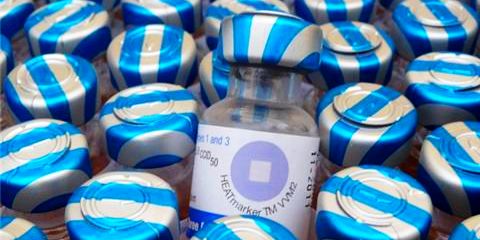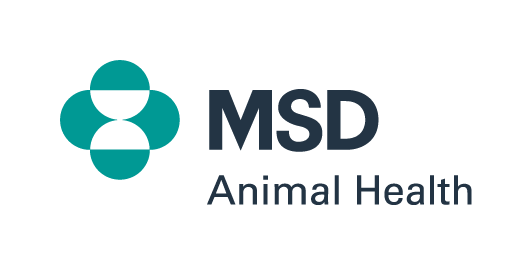疫苗中的硫柳汞

问:什么是硫柳汞(Thiomersal)?
答:硫柳汞是疫苗中最广泛使用的防腐剂。
硫柳汞是一种含有乙汞的化合物,用于防止细菌和真菌在灭活疫苗中的生长。
作为生产过程中使产品安全有效的组成部分,它也被用于特定疫苗的生产,例如,某些百日咳疫苗。自20世纪30年代以来,硫柳汞一直用于某些疫苗和其他医疗产品的生产。
问:为什么疫苗需要防腐剂?
答: 多剂量瓶在重复使用过程中可能带入细菌和真菌,防腐剂可以抑制这些污染物的生长。由于多剂量瓶在冷链中所需的储存空间较少并能够减少废弃物,而这两方面均对疫苗成本产生很大影响,因此许多国家使用多剂量瓶。
在很多国家,在以多剂量瓶供应的灭活疫苗中添加防腐剂是管制方面的要求。
问:疫苗中硫柳汞的剂量是否会对健康构成风险?
答: 硫柳汞作为疫苗防腐剂使用,十多年来,世卫组织一直密切监测与其相关的科学证据,世卫组织有一个独立的专家咨询小组——全球疫苗安全咨询委员会。该委员会一直得出同样的结论: 没有证据表明,疫苗中使用的硫柳汞的剂量会对健康构成风险。 其他专家组(如美国医学研究院、美国儿科学会、英国药品安全委员会和欧洲药物评审局)均得出同样的结论。
问:限制含硫柳汞的疫苗会对健康产生什么影响?
答: 目前,含硫柳汞的多剂量疫苗免疫为至少64%的婴儿和儿童提供保护,预防四种死亡率很高的疾病:白喉、破伤风、百日咳和B型流感嗜血杆菌。
2010年,利用含硫柳汞的疫苗来预防这些疾病至少使140万名儿童的死亡得以避免。超过120个国家使用含有硫柳汞的疫苗。
如果将硫柳汞完全从疫苗中去掉,则需要使用替代防腐剂,或完全使用不含防腐剂的单剂疫苗。替代做法会造成开发和管制审批方面的大笔开销,因而会对提供可负担疫苗的能力带来限制。
当在短时间内需要为大量人群注射疫苗时,诸如在出现疾病流行或大流行的情况下,多剂量瓶的使用是保护人群的最高效并最具成本效益的方式。
Thiomersal in vaccines
Q:What is thiomersal
A:Thiomersal is the most widely-used preservative for vaccines.
Thiomersal is a compound containing ethyl mercury used to prevent bacterial and fungal growth in some inactivated vaccines in multi-dose vials.
It is also used during production of specific vaccines, for example certain pertussis (whooping cough) vaccines, as part of the manufacturing process that makes the product safe and effective. Thiomersal has been used since the 1930s in the manufacture of some vaccines and other medicinal products.
Q:Why do vaccines need preservatives
A: Preservatives inhibit growth of bacterial and fungal contaminants, which may be introduced during repeated use of a multi-dose vial. Multi-dose vials are used in many countries because they require less storage space in the cold-chain and lead to less wastage, both of which have a significant impact on programme costs. In many countries, for inactivated vaccines supplied in multi-dose vials, the presence of a preservative is a regulatory requirement.
Q:Does the amount of thiomersal in vaccines pose a health risk
A: WHO has closely monitored scientific evidence relating to the use of thiomersal as a vaccine preservative for over 10 years, in particular through its independent expert advisory group, the Global Advisory Committee on Vaccine Safety. The Committee has consistently reached the same conclusion: there is no evidence to suggest that the amount of thiomersal used in vaccines poses a health risk. Other expert groups (for example the U.S. Institute of Medicine, the American Academy of Pediatrics, the United Kingdom Committee on Safety of Medicine, and the European Agency for the Evaluation of Medicinal Products) have reached similar conclusions.
Q:What would be the health impact of restricting thiomersal-containing vaccines
A: Immunization with thiomersal-containing multi-dose vaccines currently protects at least 64% of all infants and children against four diseases with high mortality rates: diphtheria, tetanus, pertussis and Haemophilus influenzae type b. The use of thiomersal-containing vaccines to protect against these diseases averted at least 1 400 000 child deaths in 2010. Thiomersal-containing vaccines are being used in over 120 countries. Removing thiomersal completely from vaccines would require either using alternative preservatives or using preservative-free single dose vaccines exclusively. Alternatives would incur significant costs for development and regulatory approval, thereby limiting the ability to offer affordable vaccines.
Use of multi-dose vials is the most efficient and cost-effective way to protect populations when vaccines need to be administered to large numbers of people in a short space of time, such as in epidemic or pandemic situations.
